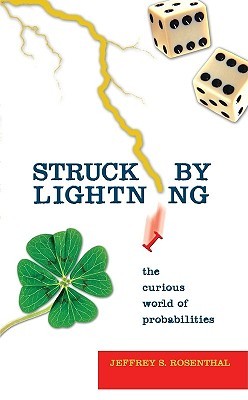MARKET WATCH
Most international markets are trading slightly higher than their closing levels of two weeks ago. But, as always, there has been some variance between them. Gold has fallen about 3%, while the emerging market index----- dominated by Chinese companies----- has risen about the same in the two-week period.
On the whole, 2019 markets have enjoyed one of the best starts to a fiscal year in some time. Although valuations remain lower than this time last year, I'm keeping an eye on what we own, as well as the geopolitical landscape.
After reading Mastering the Market Cycle (see below for more), I am more convinced than ever that our strategy of religiously rebalancing, becoming more aggressive when securities are cheaper, and less so after prolonged increases is the prudent one to take.
|
|
IN THE REVIEW QUEUE
Mastering the Market Cycle: Getting the Odds on Your Side
by Howard Marks:
Like most things in life, markets are like pendulums. While we can't always predict when their swings will happen, or how wide they will be, we can roughly recognize which part of the cycle we are in. This gives us the ability to protect our portfolios against future declines or take advantage of upcoming increases. Through his 40 years of experience and study of history, Howard Marks takes a deep dive into this theme to help us recognize where we are in order to better know where we are going.
Different Kinds of Smart
by Morgan Housel:
There are so many ways to be smart (or wise). Morgan Housel, as always, does a great job of explaining some important ones.
Steven Pinker: A New Enlightenment
by the Long Now Foundation:
A great talk by Steven Pinker on how, by most measures, life has become drastically better for most humans. Pinker attributes much of this improvement to the values of the Enlightenment, like reason, science, humanism and progress. You can listen to his talk on the Long Now Podcast.
Using Mental Models to Make Better Decisions
by The Art of Manliness:
To improve my thinking and decision-making, I've been using mental models for almost a decade. However, I often find it difficult to effectively articulate what mental models actually are, and why they are so helpful. This interview with Farnam Street's Shane Parish provides a great definition and covers some tools on how to become a better thinker.
Compounding Knowledge
by Farnam Street:
Compound growth is generally thought of in the investment world. But the concept can be applied to almost anything, including knowledge. If we add to our knowledge every year, the compounded growth can help us become much more successful and live the kind of life we really want.
The Trick Question
by Seth Godin:
An interesting thought on the kind of education we need.
|
THOUGHT-PROVOKING QUOTES FROM HOWARD MARKS
"The greatest lessons regarding cycles are learned through experience...as in the adage 'experience is what you got when you didn't get what you wanted.'"
"That's one of the crazy things: in the real world, things generally fluctuate between 'pretty good' and 'not so hot'. But in the world of investing, perception often swings from 'flawless' to 'hopeless'".
"The riskiest thing in the world is the belief there's no risk. By the same token, the safest (and most rewarding) time to buy usually comes when everyone is convinced there's no hope."
"It's not what you buy that determines your results, it's what you pay for it. And what you pay - the security's price and its relationship to intrinsic value - is determined by investor psychology and the resulting behavior."
|
MAKING CONNECTIONS

-
Over a decade ago, I read a book that changed the way I looked at the world.
Struck by Lightning: The Curious World of Probabilities
is about probability and randomness, but it's also about something more important. We are often prone to worry about the wrong things, especially when it comes to our safety. For example, you are far less likely to die in a plane than in a car, but the fear of flying is far more prevalent than that of driving. As a result, one of the book's recommendations is to worry less about rare but horrific events, and worry more on less newsworthy threats that happen with higher frequencies.
I was recently reminded of Struck by Lightning as I listened to an interview with Adam Robinson. During the conversation, he mentioned something I'd almost never thought of: the number of accidental deaths that occur in hospitals. By accidental he means,
"Not, you died as a result of what you went in for. You died because of error, human error." This number is shockingly high relative to many of the emotionally disturbing events covered in the news. If you are interested in learning more, m
y
most recent Twitter thread
covers that part of the discussion in more depth.
|
|
|
|
This provides links to other Internet sites for the convenience of users. Raymond James Ltd. is not responsible for the availability or content of these external sites, nor does Raymond James Ltd endorse, warrant or guarantee the products, services or information described or offered at these other Internet sites. Users cannot assume that the external sites will abide by the same Privacy Policy which Raymond James Ltd adheres to.
The views of the author do not necessarily reflect those of Raymond James. This article is for information only. Raymond James Ltd. Member-Canadian Investor Protection Fund.
|
|
Copyright © 2017. All Rights Reserved.
|
|
|
|